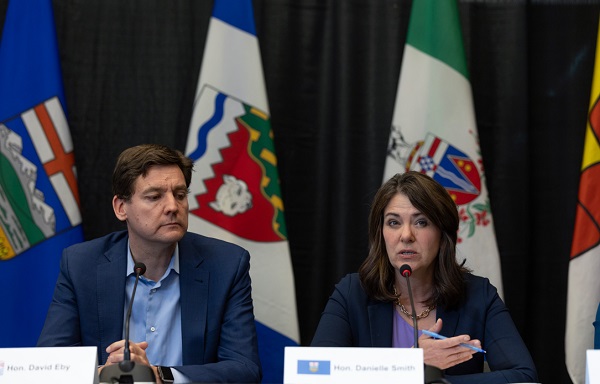Opinion
The 3Rs are very important, when it’s convenient, when it’s trendy…….
Reduce, Reuse, Recycle, the 3Rs is popular among people and is tossed out there, often, in the news. When it comes to plastic bottles, bags and straws but not when it comes to cars and neighbourhoods, for example.
There are a lot of small cars out there and most often it is an economic decision, but not always. You go to any parking lot, even those in front of discount stores and you will see many new, very large vehicles. The 3Rs do not seem to apply to our vehicles, apparently.
Our neighbourhoods offer another example. We all seem to be clamouring for newer, bigger homes in new neighbourhoods. When I was growing up it was normal to see a family of six living in houses of a 1,000 square feet. Now a family of six is rare but houses of 1000 square feet is rarer, and even rarer still is a family of six living in a 1000 square foot house.
The 3Rs comes into play when you hit retirement and it is usually a health or an economic decision.
Why do we march on Parliament Hill to stop using plastic straws and piping oil if we insist on bigger houses and bigger cars?
History says that we are building on the best agricultural land as we expand our cities with new neighbourhoods. I do not think reducing our arable land or reusing or recycling our farmland into residential neighbourhoods and industrial parks is in the goal of the 3Rs philosophy.
It seems to me that we pave over 1000s of acres of farmland to build newer homes every year, but we are worked up over how many plastic straws hit our waste management sites.
Every city has older run down neighbourhoods, ignored or avoided by homebuyers and politicians. Often times they become rentals or the first step on the property ladder, seldom thought about in the 3Rs scheme of things. Focusing on appearances and not on the potential it often easier to build or buy new houses in new neighbourhoods.
I live in an older neighbourhood, a mid century home, with deer visiting my yard. I have a view of trees and a short walk to the creek. I also have decade old cracks in my sidewalk, a shrub growing in my street. The neighbour’s house sold recently but it was a hard sell and it went for less than it was bought for almost 10 years ago. A realtor mentioned that people want new, modern homes inside mid-century houses. They see antiques and character as simply old.
So the politicians are only following the wishes of the populace when they abandon the 3Rs, pave over farmland to make room for new homes, new roads and new conveniences.
Are we only environmentalists when it is convenient and only in trends?
I do not wish to live in a cave, but I think that there is a sense of disproportionate importance in our lives that needs addressing.
Maybe the answer is paving new roads out of used plastic bags and straws, and building new houses out of bricks made of compacted trash. Maybe, and this may be unrealistic, we could just reduce the number of neighbourhoods, recycle our old houses and reuse abandoned schools.
Just a thought.
Energy
For the sake of Confederation, will we be open-minded about pipelines?

From Resource Works
Can we learn to work together and build together?
The Western provinces now stand on the precipice of achieving the status they have craved since joining Confederation. However, let’s be clear: this is about oil and gas, not just oil, not just gas.
Objectively, the West is the leading edge in Canada’s pursuit of 21st-century prosperity. Will the Western provinces get their act together, or, more to the point, will the premiers and the Prime Minister find a way to do what Canada needs them to do?
The political and cultural differences between Alberta and British Columbia date back to before they entered Confederation.
The Colony of British Columbia was a classic creation of the British Empire. The familiar British structures and institutions of governance were in place, just as they were in central and eastern Canada before Confederation. Settlers to British colonies were typically recruited with secure employment. They were usually employees of an industry, working in administration, logistics, or some aspect of commerce. It is fair to say they were not particularly adventurous, beyond the fact that they had travelled all the way to the West Coast of North America.
Before and after Confederation, many Americans moved into the prairie provinces, where British institutions were not yet well-established. Albertans are often seen, not without reason, as the most “American” of Canadians, a perception rooted in the wave of settlers who brought a frontier culture and economy north from the Great Plains. All of which becomes clear when one surveys the range of historical accounts available through a Google search.
The conflict between the staid British heritage of the Colony of British Columbia and Upper Canada, and the restless energy of the American Wild West, has always been in the background of Alberta’s relationships within Canada.
B.C. and Alberta’s conflicts over pipelines do not originate with oil; they are more like siblings in a never-ending quarrel over anything and everything. That does not mean there is no substance to the pipeline dispute, it means it requires a grown-up response.
Because if we did not think things could get more complicated, they have.
Venezuela, with the world’s largest reserves of heavy oil, is now a clear target of the United States. With the U.S. Navy positioned in the Caribbean Sea, clearly surrounding Venezuela, it is no joke and a clear threat to Canada’s oil and gas industry.
It appears evident that the American end goal is unchallenged access to Venezuelan oil. The strategy resembles a return to the centuries-old model of Empire and Vassal States. The tactical move is regime change.
The United States has only 35.2 billion barrels of oil reserves, while Venezuela, ranked first, holds 300 billion barrels, and Canada, ranked third in the world, has 170.9 billion barrels. For the United States to maintain its global oil status, it will increasingly need large quantities from Canada, Venezuela, or Mexico. (It should be noted that Mexican oil production has declined in recent years.)
Should America’s domination of Venezuela come to fruition, what does this put in front of Canada, for our economic security and sovereignty? It raises difficult questions:
• Can we be sure of maintaining access to the U.S. market?
• Would we be limited to the current capacity of the Midwest refineries, as Gulf refineries expand their heavy-oil processing capabilities?
• Can we be certain that the discount we now experience will not grow even larger?
We must be honest with ourselves. Every day brings new evidence that Canada’s oil and gas future points toward the Asia Pacific region, strengthening the case for an open mind about a new pipeline to the Pacific Coast.
The 6.5-billion-person underserved market is far more attractive, as is a market where buyers are focused on their own countries and their own people, with no intent or interest in punishing their suppliers.
For the next half-century, oil and gas will continue to be the dominant global trade currency. This does not mean we should ignore emissions or fail to protect our coastlines, it implies that neglecting the oil and gas bounty we are blessed with would betray our grandchildren.
To protect Canadian sovereignty, we must significantly expand our oil and gas production and shipping capacity to the Asia Pacific region.
Thirty years ago, no one was predicting anything close to what is happening today.
One thing that has not changed is the United States itself. Since its formation, its leaders have been both expansionist and isolationist. Preferential access to resources and Fortress America are today’s manifestations of U.S. foreign and economic policy.
We should not believe this is just Trump. There is broad public support across America. Polls indicate that while many dislike his tactics, they are also no longer accepting of the Free World relying solely on the United States. They also show growing support for a more nationalist economy, a sentiment increasingly visible across most Western democracies, including Canada.
Future American leaders may not be so Trumpian, but it would be wrong to think the Fortress America approach will be abandoned as Trump leaves office.
Prime Minister Carney needs to lead a discussion that finds a path forward and addresses long-held prejudices founded on differing entry points into Confederation.
Jim Rushton is a 46-year veteran of BC’s resource and transportation sectors, with experience in union representation, economic development, and terminal management.
Daily Caller
Ex-Terrorist Leader Goes On Fox News, Gives Wild Answer About 9/11


From the Daily Caller News Foundation
Nearly 3,000 people died across New York City, Washington, D.C., and Shanksville, Pa. during the 9/11 attacks, according to the Pew Research Center. When asked directly on “Special Report with Bret Baier” if he regrets the attack, al-Sharaa distanced himself entirely from the event.
“I was only 19 years old, so I was a very young person, and I didn’t have any decision-making power at that time, and I don’t have anything to do with it,” al-Sharaa said. “And al-Qaeda was not present right then in my area. So you’re speaking to the wrong person about this subject.”
Dear Readers:
As a nonprofit, we are dependent on the generosity of our readers.
Please consider making a small donation of any amount here.
Thank you!
The Syrian leader then shifted the conversation.
WATCH:
“We mourn for every civilian that got killed, and we know that people suffer from the war, especially civilians who pay the price, a hefty price for the war,” al-Sharaa said.
President Donald Trump hosted al-Sharaa at the White House on Monday, welcoming the former al-Qaeda member who once fought U.S. forces in Iraq and served time in Abu Ghraib prison. The U.S. government removed al-Sharaa from its terror list just days before his meeting with Trump, according to CBS News.
Al-Sharaa, who led a rebel coalition that toppled Bashar al-Assad’s regime in December 2024 while heading the militant group Hayat Tahrir al-Sham, has since recast himself as a pro-Western reformer. Legacy media outlets have described his government as “moderate” compared to Assad’s rule.
The visit marks the first time a Syrian head of state has entered the White House since Syria gained independence in 1946, NPR reported. Trump, during a speech in Saudi Arabia, said in May that he would lift U.S. sanctions on Syria.
-

 armed forces1 day ago
armed forces1 day agoIt’s time for Canada to remember, the heroes of Kapyong
-

 Digital ID22 hours ago
Digital ID22 hours agoCanada moves forward with digital identification for federal benefits seekers
-

 Daily Caller17 hours ago
Daily Caller17 hours agoLaura Ingraham Presses Trump On Allowing Flood Of Chinese Students Into US
-

 Opinion2 days ago
Opinion2 days agoThe Germans called her the ‘White Mouse’ for her elusiveness
-

 Alberta22 hours ago
Alberta22 hours agoSchool defunding petition in Alberta is a warning to parents
-

 Daily Caller18 hours ago
Daily Caller18 hours agoUS Nuclear Bomber Fleet Shares Fence With Trailer Park Linked To Chinese Intel-Tied Fraudster
-

 Agriculture2 days ago
Agriculture2 days agoBovaer Backlash Update: Danish Farmers Get Green Light to Opt Out as UK Arla Trial Abruptly Ends!
-

 espionage18 hours ago
espionage18 hours agoChinese-Owned Trailer Park Beside U.S. Stealth Bomber Base Linked to Alleged Vancouver Repression Case







